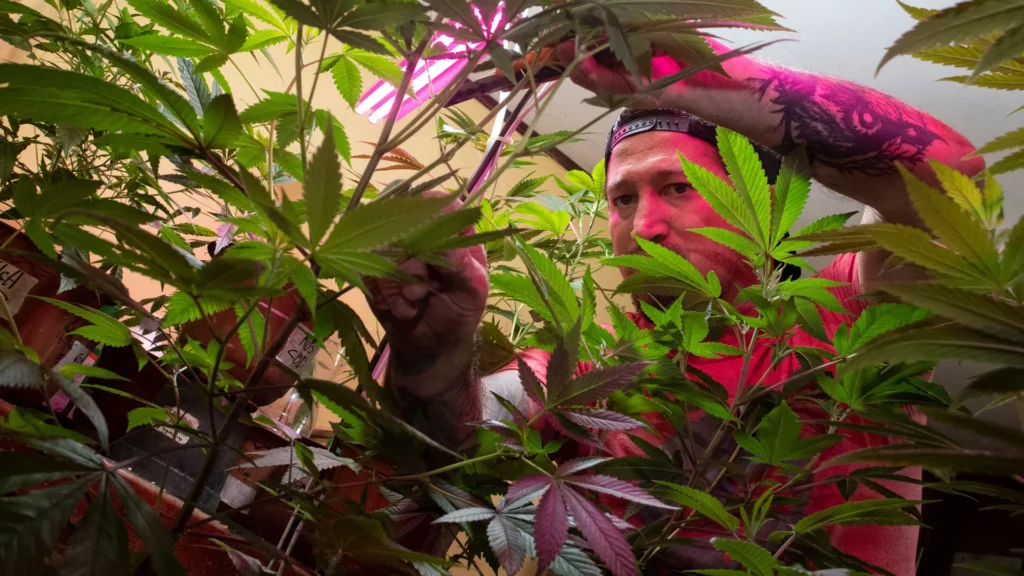
Costa Rica just legalized medical marijuana. Here’s what the new law allows
Recreational cannabis is still banned, but that, too, could soon change.
On Tuesday, Costa Rica joined the growing list of nations allowing medical access to cannabis. The law (Expediente 21.388) also allows the production and processing of hemp plants, but does not authorize or regulate recreational use. Recreational cannabis remains banned in most of Latin America, with the exception of Uruguay, which became the first country in the world to legalize adult use in 2013.
Costa Rica joins the following Latin American countries in approving medical marijuana: Argentina, Brazil, Chile, Colombia, Ecuador, Mexico, Panama, Paraguay, and Peru.
Related
17 countries that could become top destinations for cannabis tourism
1.7 million tourists visit the country each year, mostly from the United States and Canada. Thanks to the excitement of ecotourism and gorgeous tropical views, the industry pulls in about $1.7 billion annually. Both lawmakers and citizens believe that friendlier approaches to weed will boost tourism and agriculture across the country — but the new law doesn’t address whether medical marijuana cardholders from other countries can own or not Purchase of medicines in Costa Rica will be permitted. Detailed guidelines for applying to become a medical marijuana patient are expected as early as May.
Overcoming Presidential opposition to medical marijuana
Costa Rica’s medical law has come a long way from ratification. President Carlos Alvarado vetoed an earlier version in January, citing the need for individual cultivation and consumption limits.
President Alvarado is on his way out of office later this year. And both candidates fighting to replace him are decidedly recreational. Presidential candidates José María Figueres and Rodrigo Chaves will run in a runoff on April 3.
A recreational bill has been sitting in Costa Rica’s Congress since last April and appears to be imminent. That may be why the current president finally relented on the medical bill. After signing, he admitted that legalization would be “of great benefit to Costa Rica.” Since Costa Rica doesn’t allow presidents to serve four years in a row, he has no reason to lie.
President Alvarado may also have been moved by the outcry to his initial resistance. The backlash included a tearful cancer patient whose online video of regaining her appetite and regaining it resonated nationwide. But even as he vetoed previous versions of the bill, the president insisted he was in favor of a well-regulated industry.
Here’s what Costa Rica’s new medical marijuana law allows
- The law covers the cultivation, harvesting, processing, storage, and transportation of medical marijuana and hemp. The Minister of Agriculture will regulate the hemp market.
- The Minister of Health will regulate the medicinal cannabis market.
- Costa Ricans who wish to access medicinal cannabis need a permit. Application guidelines will be available by May 2022.
- Those who grow medical marijuana must register with the appropriate national health organizations. They must also undergo random and routine inspections by the Costa Rica Drug Institute (ICD).
- All hemp components are legal for food and industrial use.
- Hemp products must be tested with less than 1% THC.
- The new law does not contain any regulations for tourists with a medical license from their home countries. More details could be available by May.
- Traceability systems are gradually being introduced to trace products throughout the production chain, from seed to sale.
- Home growing will not be allowed, thanks in part to President Alvarado’s veto in January. Alvarado feared drug abuse and illegal ventures. Before signing, the President insisted that all medicinal cannabis be grown in a professional laboratory and prescribed by a doctor.
- Unlicensed growers face six to 12 years in prison for illegally growing or selling the plant.
- Tax fees collected by the Department of Agriculture and Livestock and the Department of Health are fully reinvested in national government agencies, law enforcement and compliance oversight.
- The license fees are proportional to the size and type of business.
- Permits for research activities will be available through the Department of Health, with access and conditions determined by the nature of the research.
- Cultivation and business permits are valid for six years, but can be extended after a review period.
- Only one cultivation license and one business license per citizen.
Read the full bill here.
How the pandemic affected legalization in Costa Rica
The global response to COVID-19 has hit Costa Rica’s tourism-dependent economy particularly hard. The industry saw 2 million fewer international visitors in 2020 than in 2019. While the quality of life of residents was a key driver for lawmakers, the potential revenue the country could generate from exports and tourism has often been highlighted as an argument in favor of legalization.
In 2019, Costa Rica received 3,139,008 international visitors via all modes of entry, including 1,666,571 from North America, while in 2020 Costa Rica received 1,011,912 international visitors, including 571,010 from North America.
– Costa Rica Tourism Minister Gustavo Segura Sancho
With a nationwide workforce of around 211,000 people directly employed in the tourism industry and a capacity for over three million visitors per year before the pandemic, the country is looking for ways to cushion the massive losses caused by the pandemic.
Experts estimate a 70% drop in tourism demand. According to the Central Bank of Costa Rica, national GDP fell by 4.5% in 2020, mainly due to a 40.7% decline in hotel and restaurant business.

The race to become the world’s top cannabis tourism destination
Procromer, Costa Rica’s trade promotion and export group, wants a share of the $5.7 billion annual global cannabis market. The group has campaigned for legalization for years, citing opportunities for investment, employment and improved quality of life for citizens. They predict that the global cannabis market will be worth $35 billion per year by 2025.
Related
Mexico has a new law legalizing marijuana. Here’s what’s inside
On his way out of office, President Alvarado has remained blunt about his support for industrial hemp in particular. He is confident that “it will help agricultural production and economic recovery.” But he and other officials are still tired of letting the legal industry spiral out of control.
The president justified his veto in January with concerns that legal home-growing of plants high in THC would be difficult for authorities to regulate. He and others feared that home cultivation could lead to widespread drug abuse while providing cover for illegal producers.

Zoila Rosa Volio Pacheco, the lawmaker who has been behind the law since its inception, has assured skeptics that legalization in Costa Rica would not cause a surge in national drug use. And the global data supports their claim. Nations that use harm reduction perform better in preventing drug abuse than nations that adopt a “war on drugs” approach.
Costa Rica’s progress on cannabis dates back to 2016 when attorney Mario Alberto Cerdas Salazar was arrested and charged with drug trafficking at his home in the city of Alajuela. He was an early advocate of the plant and publicly protested his right to grow and use medical marijuana.
The Judicial Investigation Organism (OIJ – Costa Rica’s FBI) said they found enough cannabis on his property “to make 5,000 cigarettes,” or about “170 plants.” But the OIJ could not prove that the cannabis was for sale.
Judge Carolina Leitón issued a historic ruling that helped set the stage for today’s legalization push. She decided, “Yes, growing marijuana is illegal; nevertheless it is not a crime if it is not used for sale.”
Cerdas Salazar was acquitted of the charges and made the first major legal win for Costa Rican cannabis enthusiasts. His case and the new medicine law give hope that expanded access and adult bills will soon be a reality for tourists, ticas and ticos nationwide.
By submitting this form, you are subscribing to Leafly news and promotional emails and agreeing to Leafly’s Terms of Service and Privacy Policy. You can unsubscribe from Leafly email communications at any time.

Post a comment: